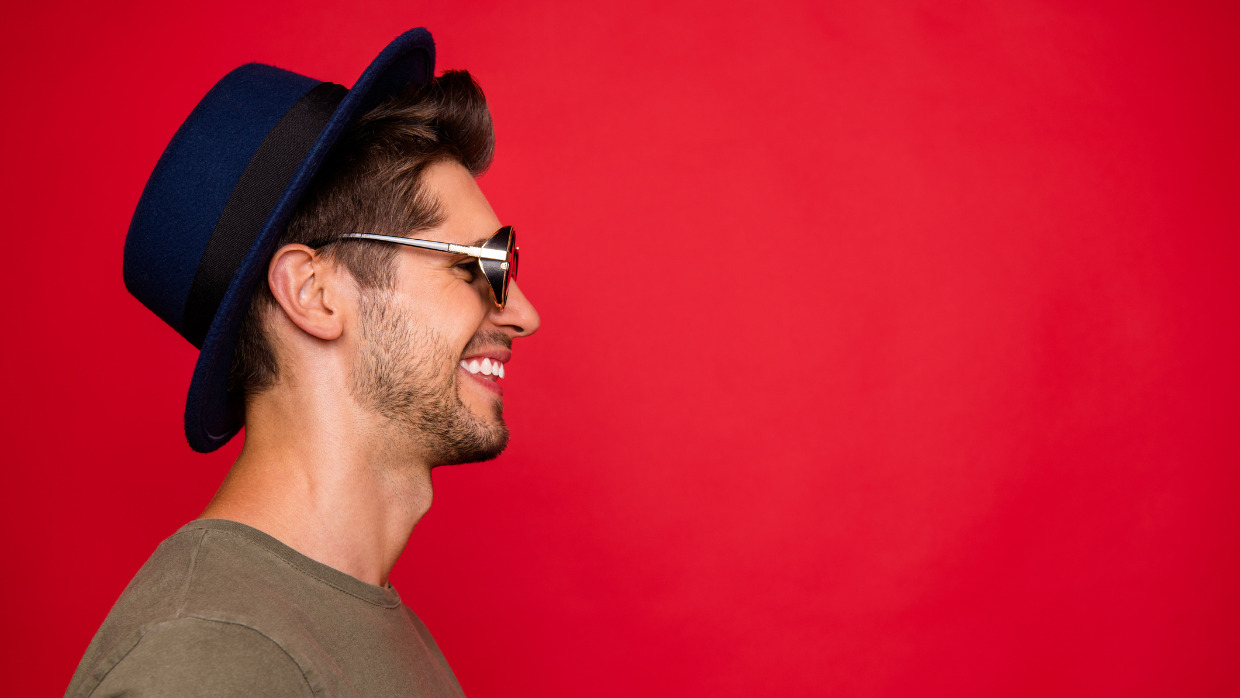 Iran’s Attack on Israel
Iran’s Attack on Israel


6 min read
The Jewish concept of modesty applies to men as much as it does to women.
A recent article of mine discussed the illusory power of girls’ clothing and the real strength we can teach our daughters. One reader’s question really caught my eye: "What about the boys?" This is a valid question and it cuts to the heart of misconceptions about the Jewish concept of tzniyut, which is commonly (but incompletely) translated as “modesty.”
The two largest misconceptions about tzniyut are (1) that it’s just about clothing and (2) that it’s just for girls. Each of these is wholly inaccurate. Yes, how much skin a person displays is an aspect of modesty, but there’s so much more to it than that. How we act, how we talk and how we treat others are all a part of tzniyut, which doesn’t mean to be “modest” so much as to act with propriety and dignity.
Before addressing either of these misconceptions, we have to acknowledge the elephant in the room: the apparent double standard. One often sees articles discussing tzniyut vis-à-vis clothes made available to and worn by women and, especially, teenage girls. How often does one see an analogous article addressing the male audience? Don’t bother counting, I’ll do it for you: never.
The reality is that fashion and society commonly position women, not men, as sex objects. Women’s legs are common sights in business offices, but men’s aren’t. Women’s shoulders, backs and more are readily visible at weddings and other formal occasions and men’s aren’t. So if we spend what appears to be a disproportionate amount of time talking about women’s clothes, that’s because it’s the most pressing aspect in our culture. But tzniyut is much, much more.
Related Article: Beauty Industry vs Modesty
The Talmud discusses men’s clothing at least as much as it discusses women’s. Just a few examples:
These are just a few of the statements about clothing that are directed at men. But even though tzniyut is concerned with clothes for both men and women, that’s not the entirety of it by any stretch. What one has on the outside is important, but it’s more important that it truly reflect what’s on the inside.
What one has on the outside is important, but it’s more important that it truly reflect what’s on the inside.
One can be covered from head to toe and still be immodestly dressed. For example, let’s say that a person is wearing a T-shirt or a button with a sexually explicit or provocative message. That would still be considered inappropriate. Now let’s take that message off that person’s chest and put it in his or her mouth. The clothing may now be “modest,” but their words are not.
Tzniyut is largely about how we act. For our sons, the pressures of advertising and clothing manufacturers may not create a crisis of dress, but we still face a huge crisis of action. In our society, the “macho” attitude directed at boys is vast. That’s not an authentic Jewish value; we’ve never been big on machismo.
Look at our Jewish role models. We strive to emulate Abraham’s acclaimed trait of hospitality. Jacob is renowned as a “dweller in tents,” who embraced study. Moses demonstrated his capacity for leadership when he chased after a stray sheep. All of these role models also fought when necessary. Abraham had to rescue his captive nephew. Jacob wrestled the angel and prepared for the possibility of war with Esau. Moses had to save the Israelite who was being beaten by the Egyptian taskmaster. We don’t shy away from a fight. We don’t hesitate to battle if need be in order to protect the innocent, but these are not the aspects of our heroes that we celebrate. The more compassionate side of our role models is inevitably our ideal.
Another important aspect of being a man is in how one treats women. When we talk to girls about what they wear, we always stress the fact that immodest clothing serves to objectify women. The onus isn’t completely on the girls, of course. If we would teach our daughters not to let others see them as objects, we must likewise teach our sons not to objectify women regardless of what they wear.
How many people have actually done this? Not many, I’d wager. In fact, we often do the opposite, albeit unconsciously, when we tacitly approve of promiscuous behaviors from boys while simultaneously disapproving of the same behaviors from girls.
The Midrash discusses the creation of woman from man. We are told that Eve was taken from Adam’s side so that they should be equals. Woman is man’s partner, not his subordinate and certainly not a thing. They are inherently different–and viva la difference!–but they are also inherently equal. Acting like a caveman towards girls actually makes a boy less of a real man.
God told the prophet Micah, “He has shown you, man, what is good. What does Hashem ask of you? To act justly, to love mercy and to behave with tzniyut in front of God” (Micah 6:8). Right there, God said what he wants of men – justice, mercy and tzniyut.
The mishna in Ethics of the Fathers tells us, “In a place where there are no men, strive to be a man” (2:5). This doesn’t mean to go around cracking skulls and taking names. That’s not a characteristic we value. If we would have our sons learn to be real men, we must teach them to reliable, honest and upright members of society, to protect the innocent when necessary and to respect women.
If we would teach our sons – and our daughters – about tzniyut, we must encourage them to internalize the characteristics for which modesty in dress is ultimately a mere façade.
